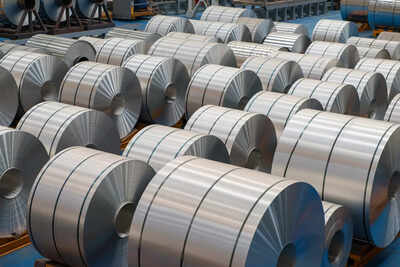India’s steel sector: Cheap imports, dumping hurt domestic production; RBI calls for safeguard measures

The Reserve Bank of India has called for policy measures to boost domestic competitiveness for the country’s steel sector which has been struggling under the weight of rising imports and dumping from global producers in 2023-24 and 2024-25.According to an article published in the apex bank’s latest October bulletin steel imports in the country surged due to low import prices, which have affected domestic steel production adversely.“The dumping of cheap steel from global producers may pose a risk to the domestic steel production, which can be mitigated through suitable policy measures. The recent initiative to impose the safeguard duty provides insulation against the import dumping,” noted the article ‘Steel Under Siege: Understanding the Impact of Dumping on India’.India’s imports of iron and steel rose 10.7% in the first half of 2024-25 to meet growing domestic demand but slowed in the second half following the introduction of safeguard duties. In 2023-24, imports had jumped 22%, driven by lower global prices.Almost 45% of India’s steel imports come from five countries: South Korea (14.6%), China (9.8%), the US (7.8%), Japan (7.1%) and the UK (6.2%). Imports from China, Japan, South Korea, Indonesia, and Vietnam increased further during 2024-25.The report also said India’s steel consumption grew by an average of 12.9% from April 2022 to November 2024, widening the gap between domestic production and consumption. Steel prices, meanwhile, have eased both at home and abroad since April 2022.“In recent times, India’s steel sector has encountered challenges due to increased imports and competitive pricing from major steel-producing countries,” said the article, authored by RBI officials Anirban Sanyal and Sanjay Singh.These pressures have reduced domestic market share, lowered capacity utilisation, and put local producers under strain. The authors said the pricing strategies of exporting nations remain a key concern.“Addressing these challenges calls for a balanced approach, including policy support and initiatives to enhance the competitiveness of India’s steel production through innovation, cost efficiency, and sustainable practices,” the article added.The RBI article also pointed out that slower growth in China and other major steel markets is redirecting trade towards fast-growing markets such as India. It further warned that US tariffs on steel imports could heighten the risk of dumping.The analysis draws on monthly data from April 2013 to March 2025, using the unit value index (UVI) of iron and steel imports to measure import intensity and assess dumping’s impact. The RBI clarified that the views expressed are those of the authors and do not represent the official position of the central bank.






